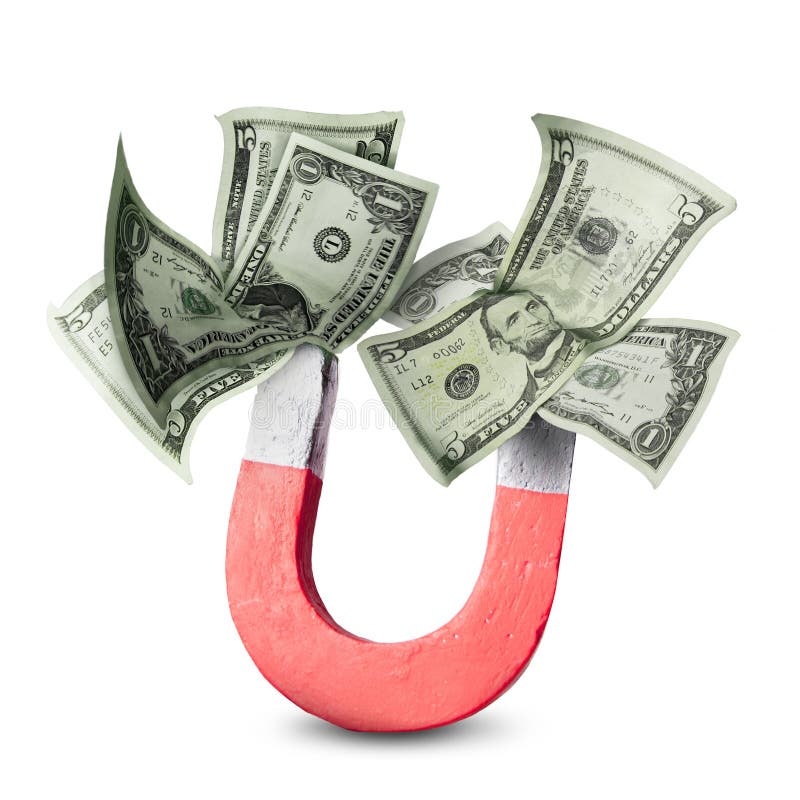If you've ever wondered why some people always appear to have money while other people find it difficult to manage their finances, the explanation may lie in each person's unique personality.
In our present society, it is very common to see people handle their finances in diverse ways. For every same financial situation there are different methods of approach by different people.
Most people are unaware of this fact, but everyone of us has a distinct financial personality. Our capacity to handle and manage money is significantly influenced by our financial personalities. You'll learn from this article that your ability to handle your finances properly or poorly, which is frequently influenced by your personality, determines how much money you end up making in the long run.
What then is financial personality?
According to me, your financial personality is how you see and manage money, including your attitude toward it, your belief system, and the behaviors and actions that follow from those beliefs. Whether we're aware of it or not, everyone of us has a special set of features and attributes that determines how we personally manage our finances. And even while there are some aspects of life we can influence and others we cannot, there are always things we can do to improve ourselves so that they don't get in the way of our efforts to succeed financially. Different factors contribute to some people's greater financial success than others.
How well your personality fits with your financial objectives and behavior can have a significant impact on how much money you have at any given time.
When evaluating a person's financial situation, researchers frequently keep an eye out for five key personality traits. They consist of extraversion, conscientiousness, agreeableness, neuroticism, and openness to new experiences. According to study, these characteristics can influence how you handle money in a variety of ways.
You could believe that how you manage your money is merely a matter of habit, but in reality, it's certainly influenced by who you are as a person.
For instance, if you have trouble controlling your spending, it's likely that this is due to a personality trait such as a dislike of debt or a fear of running out of money in an emergency.
When it comes to financial personalities, there are six different types of persons. The Spender, the Saver, the Investor, the Dreamer, the Pessimist, and the Optimist are among them.
See which one best describes your present financial practices.
1) The Person who Spends
Spenders are hasty and impulsive. Additionally, they are not adept with money. They are prone to being drawn to extravagance and instant fulfillment. They struggle with budgeting, investing, and saving because their major priority is getting pleasure right away. They struggle to handle their debt. If you exhibit any of these characteristics, you might be a spender.
2) The Person Who Saves
You are one step ahead of the game if you save. Focusing on long-term objectives while saving money doesn't seem like a big deal to you. As a saver, you are practical about building up your reserve and have a tendency to stick with your savings strategy even when you are tempted to change it.
3) The Dreamer
Dreamers are well aware of what makes them happy and are skilled at obtaining it. The trick is that they typically don't let their feelings or their current situation control how they behave financially. Irrespective of how much they might currently want something different, they make a strategy and stick to it.
You're likely to achieve financial success because of your dreamer's spending habits. You develop a keen intuition and vivid imagination about what makes you happy and how it connects to your finances as a result. After then, you start to consider and take action in the direction of the mental picture.
4) The Person who Invests
Even if an investment opportunity seems dangerous or challenging, as an investor, you have the ability to seize it when it presents itself. Your focus is constantly on the markets and equities to ensure that any assets that are underperforming are removed from your plan.
The potential return on investment is what drives an investor; the investor seeks large returns with low risk, thus he'll always choose the lower risk option if it means choosing between two solutions with similar prospective gains but different levels of risk. Investors constantly adopt a win-win attitude.
5) The person who is always Optimistic
This individual has the outlook that wonderful things will come to pass irrespective of their current financial circumstances. They take pleasure in finding something positive in every circumstance and have a positive outlook at all times. Optimists are more likely than any other personality type to succeed financially because they invest and save money. They take fair risks and, in general, like to gain more wealth.
Realistically speaking, people who have a positive attitude on life tend to have greater physical health and general satisfaction. It may seem too straightforward to say that this is the secret to success, but it is real. In our pursuit of success, certain seemingly insignificant details—like simply adopting an upbeat outlook—can make a big difference.
According to research, having a positive outlook on life is strongly correlated with financial success. It has been demonstrated that optimists typically have greater financial success than pessimists do!
6) The Pessimist
Even when investing chances arise, a pessimistic person will constantly choose to preserve money whenever possible. Not only do they search for methods to conserve money, but they also anticipate that there will be a justification for doing so. They are constantly looking for methods to minimize costs.
A pessimist will always find justifications for avoiding risks; they always want to handle their money safely. Their income barely increases as a result. Even if their financial situation is not ideal, they constantly plan for the worst case scenario, which prevents them from incurring debt because they are frugal with their expenditures.
The significance of knowing your financial personality.
You may make wiser financial decisions and strengthen your overall financial structure by being aware of your money personality. It all boils down to knowing your surroundings, including your family, friends, and coworkers, as well as yourself.
Knowing how a particular personality type will react in a given circumstance will help you respond effectively. Say for instance, if someone has an Extrovert personality and they take out too much debt on their credit card simply with the intention of buying something nice for their family or friend, they may end up regretting it later when they aren’t able to pay off the debt on time. Knowing this ahead of time could prove helpful when deciding whether or not to take on a financial burden.
Your personality is closely correlated with how you handle your money. Extroverted people are more prone to have poor money management skills. They won't have any trouble spending their limited resources on things like social gatherings that don't truly benefit them.
Introverts wouldn't have this spending issue because they already find social situations uncomfortable.
Why it is important for you to understand your financial personality.
Self awareness is the first thing that will become clear to you once you know your financial personality. Someone with a great sense of self-awareness is steps ahead of the usual uneducated person when it comes to the idea of financial security, even if they have a worrisome personality. Although their personality qualities won't always determine their financial destiny, it will help them determine the type of lifestyle they wish to lead.
Getting to knowing and understanding a problem is the first step to getting a lasting solution.



